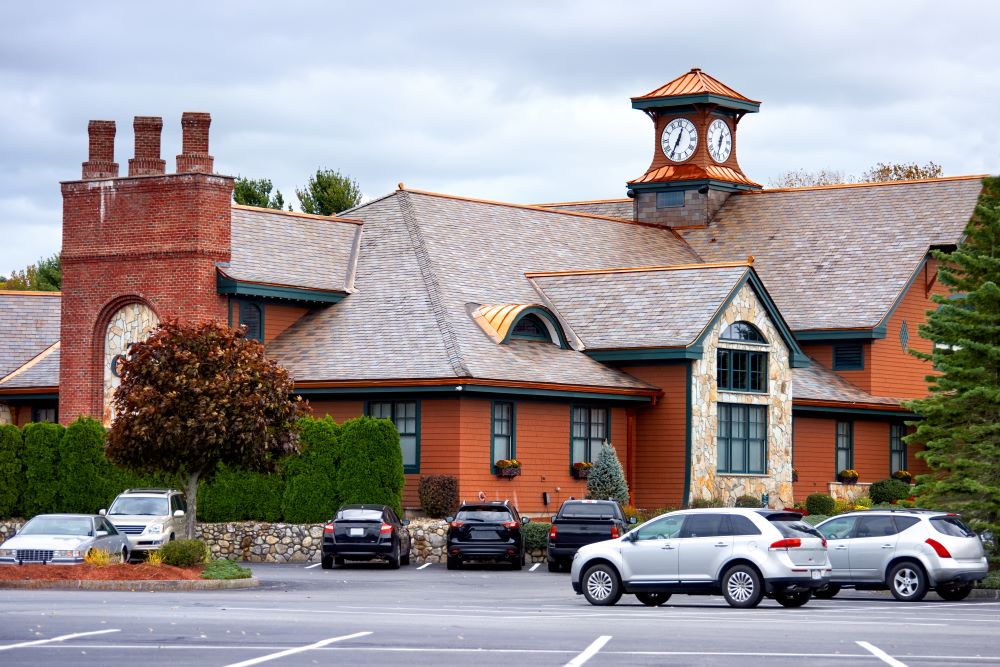Gain an edge over the competition by adding value to your rental home with strategic additions. Owning a home in a neighborhood with an active homeowners association, you may need to quickly flip through your guidelines before calling your contractor. It’s not uncommon for HOAs to set policies on how property owners can go about construction projects, and you may even need to get a permit. So to help you avoid stepping on your neighbors’ toes, we’ve put together the perfect walkthrough on securing construction permits in HOA communities.
Understanding HOA Requirements
Architectural Standards
Ensure your property fits in with the pack by adhering to your community’s architectural standards. In preserving a neighborhood’s aesthetics, some HOAs dictate any renovation project, style, materials, and overall design. After all, very few people would enjoy seeing a Barney purple-colored condo or Gothic-inspired horror house on their morning walk. While some communities are more lenient with their artistic allowance and only require you to get approval for your design, others have strict lists of do’s and don’ts to maintain uniformity. So we recommend that you hire a Philadelphia HOA rental manager to guide you on approved architectural standards in your community.
Landscaping Guidelines
Follow community standards for yard maintenance to avoid paying fines. Besides architectural standards, it’s common for HOAs to also have landscaping guidelines to boost the overall curb appeal. Some neighborhoods are happy to overlook the fact you haven’t mowed your lawn in two months, others are more eager to slam you with penalties when your home’s exterior looks like an eyesore. If you’re considering doing some work on your landscape, ask about what types of plants are allowed and if you can use certain hardscaping materials so you comply with all HOA policies.
Setback and Zoning Restrictions
Ask about additional zoning restrictions to avoid intruding on your neighbor’s property or building in a communal space. It’s not always obvious where one house starts and the other ends, especially if you live in a neighborhood with few fences. As a result, if you’re planning on building physical structures like a fence, or shed, or simply expanding your deck, it’s best to check with your local HOA before starting with your project. The last thing you want is to have to tear down your structures after spending time and money on it.
Types of Home Projects that Require Approval

Major Renovations
Keep your HOA informed when you plan to start major renovations. Some may require sharing the plans for your new kitchen or bathroom remodel so they know what to expect. Despite these changes affecting mostly your home’s interior, they can also alter the exterior and functionality. So you might need the HOA’s approval that your work won’t significantly affect the community’s aesthetics and construction standards.
Structural Modifications
Proactively address all safety concerns regarding your construction by reaching out to the HOA for approval. Beyond being courteous, it’s ideal to get approval for any changes that affect the structural integrity of a house, especially if it’s not a stand-alone unit. In other words, you can’t add a second story, knock down load-bearing walls, or add a new one without prior communication with your HOA. It’s also important to note that structural modifications need to adhere to local guidelines and building codes to follow.
Plumbing Changes
Notify your HOA whenever you plan to make significant plumbing modifications that may affect more than one house. For example, an additional bathroom could involve installing a new septic system or relocating a former sewer line. This change can inevitably affect your neighbors if it’s not done right, which is why it’s important to choose the right HOA management to handle the operations of your rental, including approvals before starting with modification projects.
How to Secure HOA Approval?
1. Communicate Early
Establish open and proactive communication with your HOA board from the beginning. It’s much easier to get approval when you make the first step, so instead of trying to force the board’s hand by starting work or asking for permission when trucks are already in the driveway, submit a proposal. Provide the team with detailed plans about your timeline and specifications, allowing you to avoid misunderstandings in the long run.
2. Demonstrate Compliance
Create goodwill with your HOA by highlighting how your project aligns with their guidelines. Aside from showing a draft of your proposed remodeling, increase your chances of getting a yes by telling your neighbors how your design can actually boost the neighborhood’s curb appeal.
3. Address Potential Concerns
Prepare to address any potential concerns the HOA board could raise about your construction project. Beyond providing details, you also need to be able to soothe any worries about your project’s impact on the community. For instance, if you’re planning to add another story to your building it could disrupt the light flow to the next house, so you need to counter these points by showing that those fears are exaggerated or how the added shade could be beneficial.
Conclusion
Maintain mutual understanding and respect with your neighbors by sticking to communal guidelines during your next renovation. When you live in a community, it’s your responsibility to act like it, even if that means curbing some of your wilder renovation ideas for the benefit of all. So double-check your HOA’s architectural standards before opting for a graphite roof, and check the landscaping guidelines before installing that peculiar garden sculpture.
As a rule of thumb, property managers recommend seeking construction permits for significant home projects like major remodeling, structural modifications, and plumbing changes. Since other property owners have to bear the consequences of your changes, it’s only normal that you get approval before starting. As long as you give your HOA the right heads up and show your willingness to follow community rules, you should get your permits.














